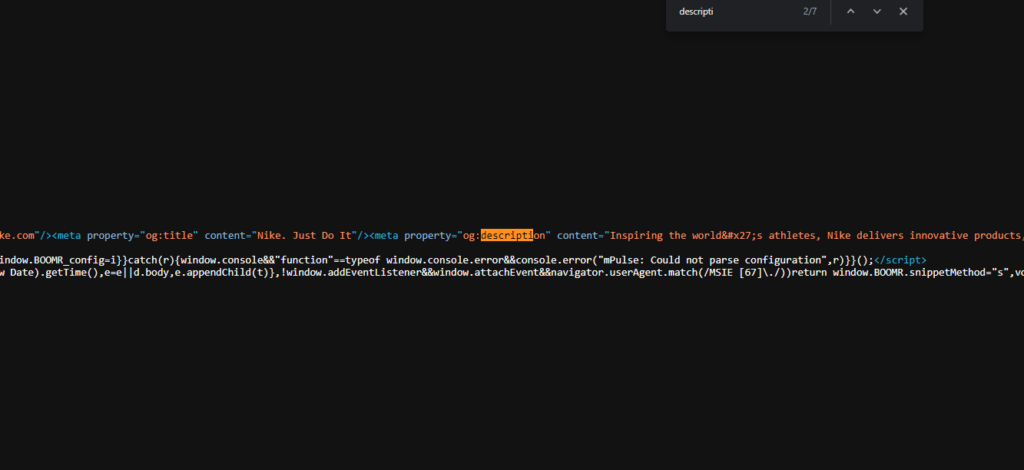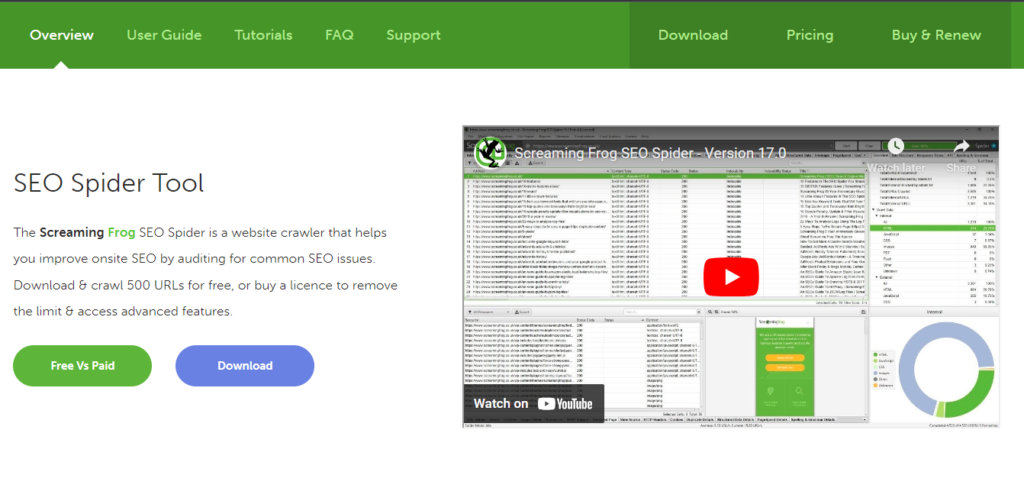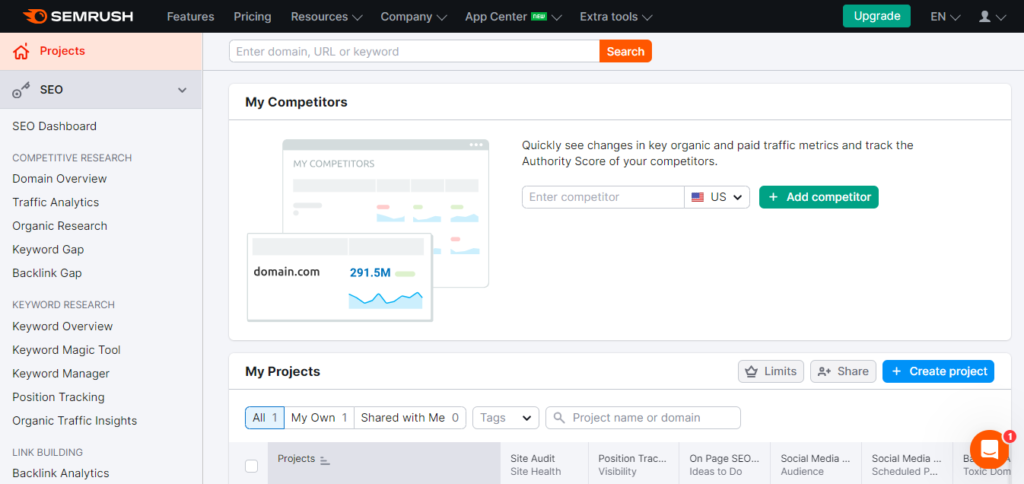
Researching and analyzing your competitors’ keywords is one of the best ways to optimize your natural SEO. Finding a competitor’s keywords allows you to improve your SEO strategy and gain a comparative advantage. In this article, we’ll learn how to identify the keywords your competitors are using, evaluate their performance, and use this information effectively.
What does analyzing your competitors’ keywords involve?
A competitor’s keywords are the expressions used by your competitor on which he is referenced, regardless of his position. Knowing its expressions will help you optimize your SEO strategy. Here are 4 ways to use the data collected:
- Steal keywords from your competitor and thus be referenced on the same expression.
- Find keywords that have not yet been used by your competitors.
- Discover general terms that you wouldn’t have thought of that are used in your niche.
- Find out why your competitor’s website ranks higher than yours on general keywords.
How to find keywords for a website?
If you’re hoping to find a tool that automatically generates a list of keywords your competitors are using in just a few clicks, you’re going to be disappointed. It’s actually not that simple. Although some tools are very handy, you will have to do some manual research to compile a complete list of keywords. But that shouldn’t discourage you. While there isn’t a tool that can search all of your competitors’ keywords in one click, there are a few strategies that can simplify the research process.
The first step to finding a relevant keyword that attracts traffic to competing sites is to brainstorm. On a sheet of paper or an Excel file, write down all the keywords that come to mind to represent your brand, products or services. To do this, always think about the Internet user and the type of query they would likely type in the search bar. To help you in this work, you also have the option of clicking on the suggestions provided by Google when you enter a specific term.
Once this work is done, you can then move on to the next step and use tools available on the Internet. Below, I share with you my favorite tools for finding and analyzing the keywords that make your competitors visible on the Web.
Top 5 tools to find keywords from your competitors
Here are different tools which each have their respective advantages. For a complete analysis of your SEO competitors’ keywords, I advise you to use them all. You will then be able to know precisely in which direction you should direct your content marketing strategy
1- Know the keywords of a site through the source code of its page
This is the “old-fashioned” method and the most tedious. In your Internet browser, go to your competitor’s website and choose the page you want to search for. If you are unsure of your SEO competition, simply type in the keyword you want to rank for. Then analyze each organic result present on the first page of the SERP.
Once you are on a competing site, right-click on the page to view the source code of the page (keyboard shortcut: CTRL + U). A window displaying the HTML source code of the page will appear. Look for keywords in the code, including the title tag, meta description, meta keywords tag, and all image alt and title tags (for information, most websites no longer use the keywords tag – obsolete).

2- Screaming Frog Spider

Use Screaming Frog Spider software to perform a simple check of your competitor’s site. Simply download the software to your computer and use it to analyze your competitor’s website. This tool is in English, but simple to understand and available in a free version. For SEO experts, a paid plan (£149 per year) allows you to benefit from an unlimited number of searches.
It works the same way as a search engine. You will get a lot of information including metadata, alt tag, anchor text, title texts and much more. All of these components help identify the keywords that your competitor has targeted. Don’t hesitate and start researching your competitor’s keywords using Screaming Frog.
3- SEMRush

SEMRush offers a great tool that allows you to access the ranking conditions of any domain. It’s very simple: enter your competitor’s website address and access the SEMRush listing. Even if it can be difficult to get started, it is intuitive to use and the results offered are completely reliable. It is not for nothing that it is certainly the SEO tool most used by SEOs!
SEMRush also provides the URL of the page that uses the keyword. This allows you to identify which posts from your competitor are performing particularly well.
4- Majestic SEO

MajesticSEO is a huge database that maps links across the web, the tool shows how pages and websites are linked. You can effectively study the link strategy (backlinks) implemented by your competitor and analyze each of the anchors (link text). Generally, anchors contain the keywords your competitor wants to rank for.
5- BuzzSumo

BuzzSumo adds a very cool twist to the competitive keyword research process by changing its method. It actually focuses on the social and sharing angle. In doing so, it “reverses” the research process.
Instead of searching for your competitors’ keywords, you choose the keywords you’re interested in and BuzzSumo provides you with a list of websites that use them. BuzzSumo shows you the most shared, liked content for any keyword.
The idea is to access content that is successful and analyze it to better understand the variations, types and nuances that work well. This can also help you identify your “new” competitors. These are other websites that use the same keywords as you.
Other tools for analyzing your competitors’ keywords
There are several online tools that easily provide the list of keywords used by your competitors. Our favorite advertising keyword research tools are SEMRush (free or premium) and Ahrefs.
You will find a complete list of complementary tools below:
- Yooda Insight
- SEObserver
- Ahrefs Keyword Explorer
- Moz Open Site Explorer
- SiteChecker
How to Profit from Analyzing Your Competitors’ Keywords
You have completed the keyword analysis of your SEO competition using one of the tools we talked about. You have also checked which content from your competitors works best and you therefore find yourself with a list of keywords. What is the next step ?
There are different ways to use the information and keywords you have collected. So that this research can influence your strategy, I advise you to follow the following steps:
- Use the data collected to compare yourself to your competitors and thus measure your success. This can be particularly useful over time to measure your growth against the competition.
- Look for weaknesses in your strategy through your content and keywords.
- Take inspiration from the keywords used by your competitors and design content tailored to these expressions. This is probably the best thing you can do for your website.
- Analyze phrases to better understand what your readers value and are looking for.
- Find new competitors. It is crucial to know your competitors on the search engines (SERPs).
Conclusion
I have just offered you all my techniques to find your competitors’ keywords on search engines. As always in natural referencing, this requires an investment in time (or money). However, you are aware that by focusing on SEO, you will establish your visibility on the Internet in a lasting manner. So take care to do this work carefully in order to put all the chances on your side to appear at the top of the SERP. This process is simply essential and is part of a complete analysis process of your SEO competition. By reading this blog post, you will know how to be recognized by Google as the essential specialist in your field of activity.





